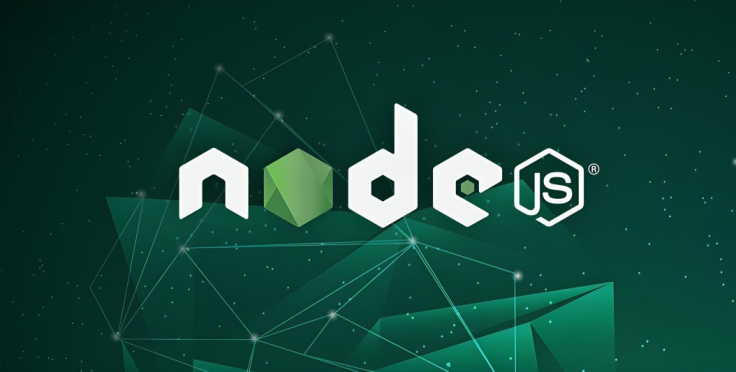The E-commerce industry develops at the speed of light, bringing more and more new participants and thus increasing the competitive edge on the global scale. The fast-paced evolution of commerce requires businesses to create and run the e-platform backed up by a robust tech foundation to handle all the requests of society and modern lifestyle; that's where Node.js comes onto the stage.
Node.js is a popular solution among the developers of E-commerce solutions, as it promotes flexibility and unlimited scalability for its users. When wanting to hire a Node.js developer in the USA, it is important to have a general idea of the current trends of its implementation. Therefore, let's prepare you for the forthcoming cooperation and learn the benefits of Node.js implementation and its influence on the development of E-commerce solutions.

What Is Node.js?
Node.js is an open-source, cross-platform environment that uses the V8 JavaScript Engine and its runtime environment to execute JavaScript code outside a web browser. Using JavaScript as the basic programming language simplifies front and backend development.
Node.js is a highly adaptable framework with Windows, Linux, Unix, macOS, and other operating systems.
Why Choose Node.js?
Node.js is used by 42.73% of professional E-commerce mobile app development companies due to its beneficial characteristics:
High Performance 一 Node.js executes one of the fastest JavaScript engines, which provides its multitasking functionality. Its efficient responsiveness to numberless queries is backed up by its single-threaded and event-driven architecture. Moreover, due to event-loop and non-blocking I/O operations, the rate at which the code is executed impacts the responsiveness of the application on the whole.
Scalability 一 Node.js creates unlimited opportunities for horizontal and vertical scaling of the applications.
Simplicity 一 Node.js is relatively simple to understand as JavaScript is familiar to the majority of developers.
Decreased loading time 一 the Node.js caching module allows developers to decrease the task load and time for code re-execution.
Efficiency 一 Node.js can be used by the back-end and front-end, which results in time, money, and energy savings for the project development on the whole.
Node.js Development Trends
1. GraphQL Deployment in Node.js Apps
GraphQL deployment propels the speed of applications, as it allows multiple queries to be united into a single request, reducing the client-server interaction. GraphQL is useful when there is a need to manage considerable volumes of data from various sources without sacrificing the request processing speed.
2. Internet of Things (IoT)
The Internet of Things (IoT) is related to the hyper-connectivity of our lives, where everything can be checked, controlled, and monitored by the usage of devices and sensors. Node.js is a cross-platform JavaScript runtime environment that seamlessly works across various systems. By combining both solutions, developers can create IoT applications with a more efficient and scalable performance, elevating overall user engagement.
3. Microservice
There are two main approaches to building the application architecture—microservices and monolithic. A monolithic structure is built as a single unit with a single base and framework. The microservice, however, is more flexible, as the structure is split into independent units, which all together form a large application.
Node.js offers a supportive environment for developing microservices due to its efficient and lightweight characteristics. The microservices can be scaled up horizontally just by adding infrastructure elements.
Microservices architecture entails relatively quick development and deployment, uninterrupted delivery, scalability, and a resilient environment.
4. Real-Time Applications (RTA)
A real-time application, or RTA, demands time, as users expect immediate responsiveness from the services used. The RTA functions within the current or immediate time frame. The latency is measured in seconds.
Due to its fast and scalable nature, non-blocking architecture, and multi-request capabilities, Node.js is a common choice by developers for delivering real-time applications for retail, gaming, video conferences, streaming services, instant messaging, document sharing, financial transactions, etc.
5. Serverless Architecture
Serverless architecture is mainstream nowadays, as it offers greater scalability and flexibility for developers. It's an application development that lets the developers build and run the code without a backend infrastructure, as all the computing is done through cloud services.
The Node.js serverless structure employs Node.js functions to perform HTTP requests and events. All the tasks and codebases are uploaded to cloud services like AS Lambda.
6. DevOps Environment
DevOps is a common 'philosophy' in the IT industry, which entails the integrity and automation of software development and IT interactions to improve the development lifecycle.
Node.js provides a compact and adaptable framework for creating code to run on both the client and server sides, synchronizing them with JavaScript code on both sides. The adaptability and efficiency of Node.js fit perfectly into the idea of DevOps.
The Final Note
The popularity of Node.js has been growing significantly due to its efficient and adaptable nature. The usage of Node.js helps increase the functionality of the E-commerce platform and streamline all the functional processes. Given the constant improvement of its characteristics, Node.js is sure to win a more significant share among the users.









